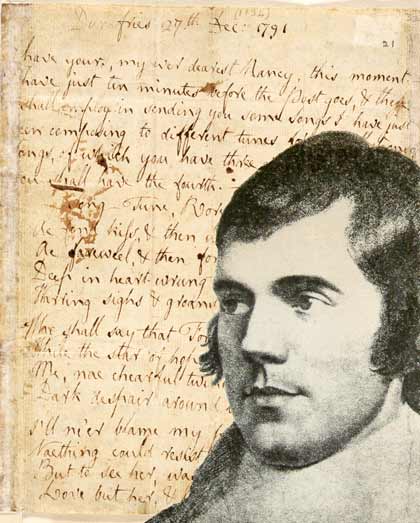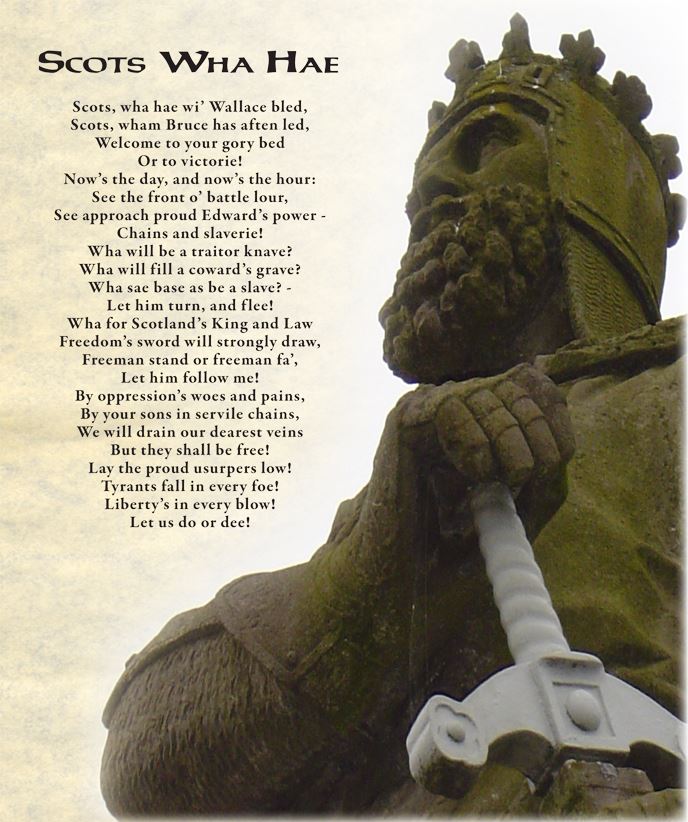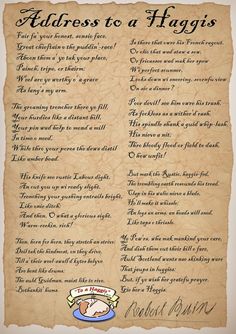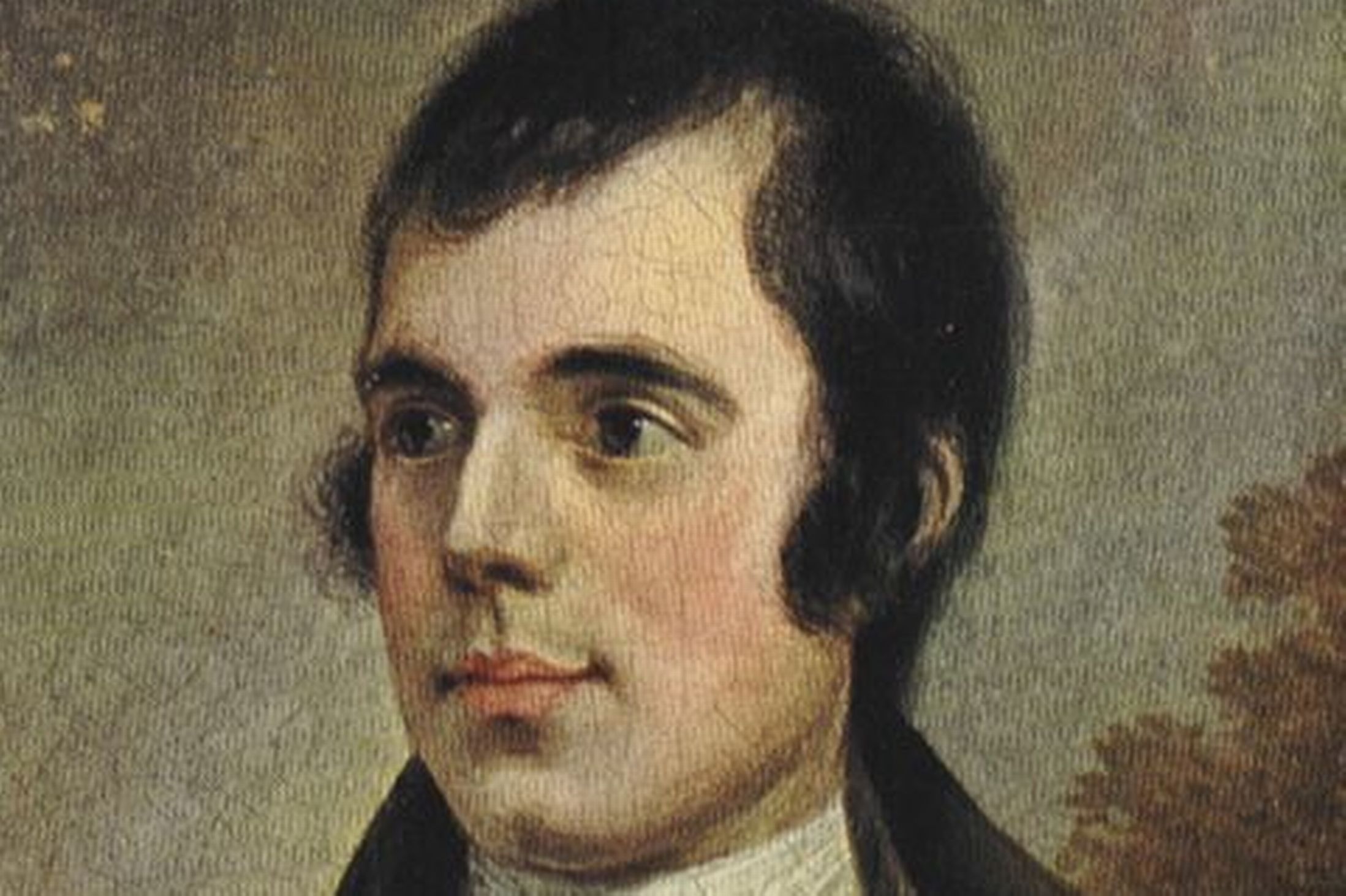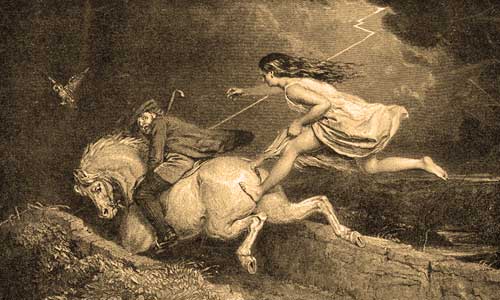About the Poet: Robert Burns was a Scottish poet and lyricist. He is generally thought to be the national poet of Scotland because he is the most widely read among all poets who have written in the Scots language. Burns has also written in English and a light Scots dialect, so that his poetry would be understood by an audience beyond Scotland as well. He has even written in standard English. The volume of works by Burns which came to be known as Poems, Chiefly in the Scottish dialect came out in 1786. Also called the Kilmarnock volume, it contained much of his best writing. In 1791, Burns was requested to write lyrics for The Melodies of Scotland, and he responded by contributing over 100 songs.
Robert Burns, Scotland’s greatest poet is famously known for his love of Nature. He wrote many poems on this theme and many of his poems (basically songs). A fine example of Burns is My Heart’s in the Highlands. Written in the year 1790. Burns was then living at Ellisland Farm. Although by this time he had been appointed a post in the Excise and was contributing to Johnsons Scots Musical Museum. In the first stanza of the verse, the poet or the first person narrator bids farewell to the “Highlands”, “to the North”. Probably he was in city or somewhere else far from the highlands or simply he was leaving the highlands for some tasks to complete.
We don’t know, we are clueless here, all we can do is guessing. The highlands of Scotland which are greatly admired for its scenic beauty and mesmerizing visual charms is the birthplace of the poet Robert Burns. The highlands which according to poet Robert Burns is “The birth-place of Valour, the country of Worth” is also the birth place of Robert Burns and he is so emotionally attached to this place that in most of his songs, he reiterates the theme of this love for the highlands often. In the last line, he says that wherever he goes, he cannot forget the love of the hills.
2nd Stanza: In the second paragraph he repeats the same lamentation of the first stanza that “[his] heart’s in the Highlands” where he used to chase the deer, roe and other wild life creatures. “My heart’s in the Highlands a-chasing the deer;/A-chasing the wild-deer, and following the roe”. The poet laments that he can no longer enjoy those pleasures as he is no longer in the country sides. This adds to the melancholiness, a sense of longing of the poem.
3rd Stanza: In this stanza, the poet bids a series of farewells. He bids farewell to “mountains high covered with snow”, “to the straths and green valleys below”, “to the forests and wild-hanging woods”, “to the torrents and loud-pouring floods.” Farewell is an ultimate form of goodbye, so we can assume that the poet or the first person narrator here is leaving for good and there is a possibility that he may not return.
4th Stanza: The last stanza is the repetition of the second stanza. As it is a song, so the same stanza gets repeated here. In many popular literary editions and publications, this stanza is omitted.
Burns choice of words is important. The alliteration of “H” in the stanzas is done to enhance the melody of the song. There is also an alliteration of “s” in “My heart(s)”, “in the highland(s)”, “my heart i(s) not here”, Also a-cha(s)ing. This “s” is almost like a sigh and the chasing suggests the chasing of a dream which cannot be fulfilled.
Theme of My Heart’s in The Highlands
The theme of the poem is the love of highlands. The poet or the narrator idealistically recalls his love for the highlands. It also shows a sense of gratitude, patriotism of the poet for his nation, his indebtedness to the beautiful cultural tradition.
Tone in My Heart’s in The Highlands
The tune used in this song/poem is the FÁILTE NA MIOSG, also known as “The Musket Salute.” specially arranged for the bagpipes and other accompanying instruments.
My heart’s in the Highlands, my heart is not here;
My heart’s in the Highlands a chasing the deer;
A chasing the wild deer, and following the roe,
My heart’s in the Highlands, wherever I go.
Farewell to the Highlands, farewell to the north.
The birth place of Valour, the country of Worth,
Wherever I wander, wherever I rove,
The hills of the Highlands for ever I love.
Source for notated version:
Printed sources: James Oswald (Caledonian Pocket Companion, vol. 1), 1760; p. 22.
Rhyme scheme in My Heart’s in The Highlands
It is basically a song for singing like most of Robert Burns’ poems. It is not meant to be read. The rhyme scheme of this poem is simple. The song is set according to the famous Scottish folk song tune “FÁILTE NA MIOSG”. The rhyme scheme is aabb; ccdd; eeff; aabb. All the stanzas follow the same rhyme scheme. In every stanza of the chorus, the first line rhymes with the second line, and the third line rhymes with the fourth.
It is noticeable that the rhymes are either weak or are “eye” rhymes. North and worth, Rove and love, woods and floods. However, in dialect and especially when sung these are not noticeable. Burns also used the rhymes woods and floods in his famous poem “Tam o’Shanter” and many other poems.
”Before him Doon pours all his floods
The doubling storm roars thro’ the woods.”
Some online learning platforms provide certifications, while others are designed to simply grow your skills in your personal and professional life. Including Masterclass and Coursera, here are our recommendations for the best online learning platforms you can sign up for today.
The 7 Best Online Learning Platforms of 2022
- Best Overall: Coursera
- Best for Niche Topics: Udemy
- Best for Creative Fields: Skillshare
- Best for Celebrity Lessons: MasterClass
- Best for STEM: EdX
- Best for Career Building: Udacity
- Best for Data Learning: Pluralsight
